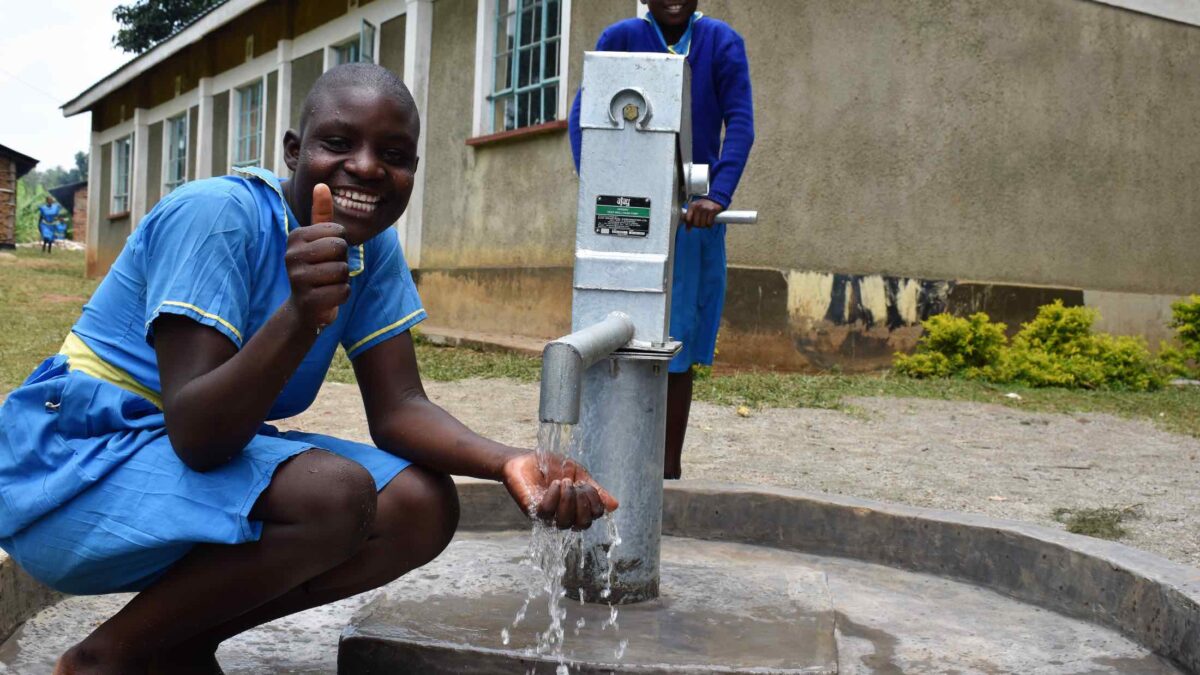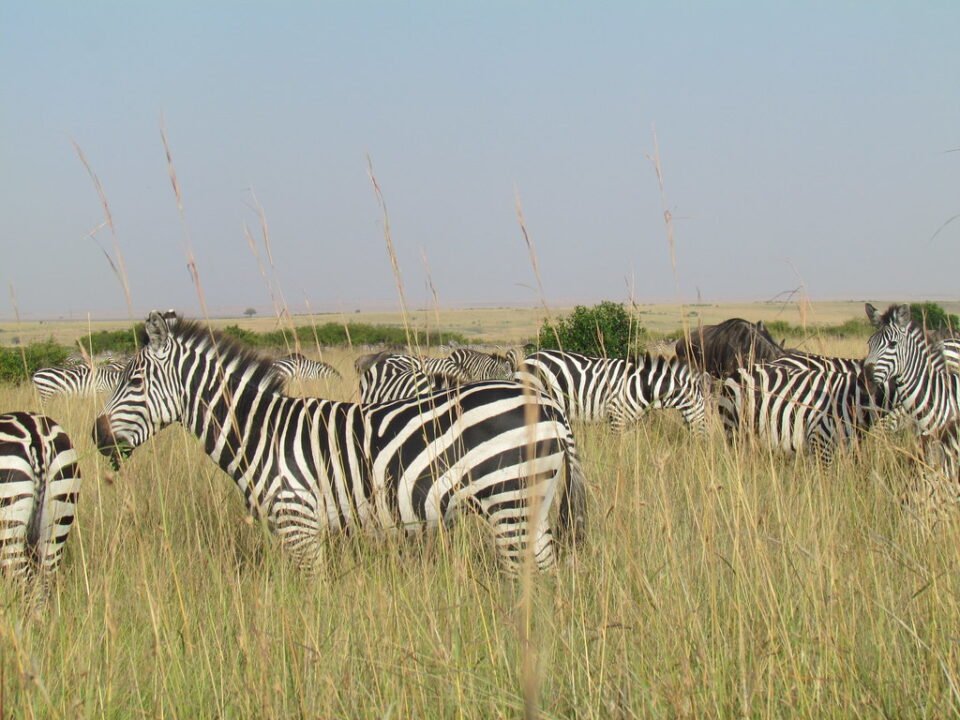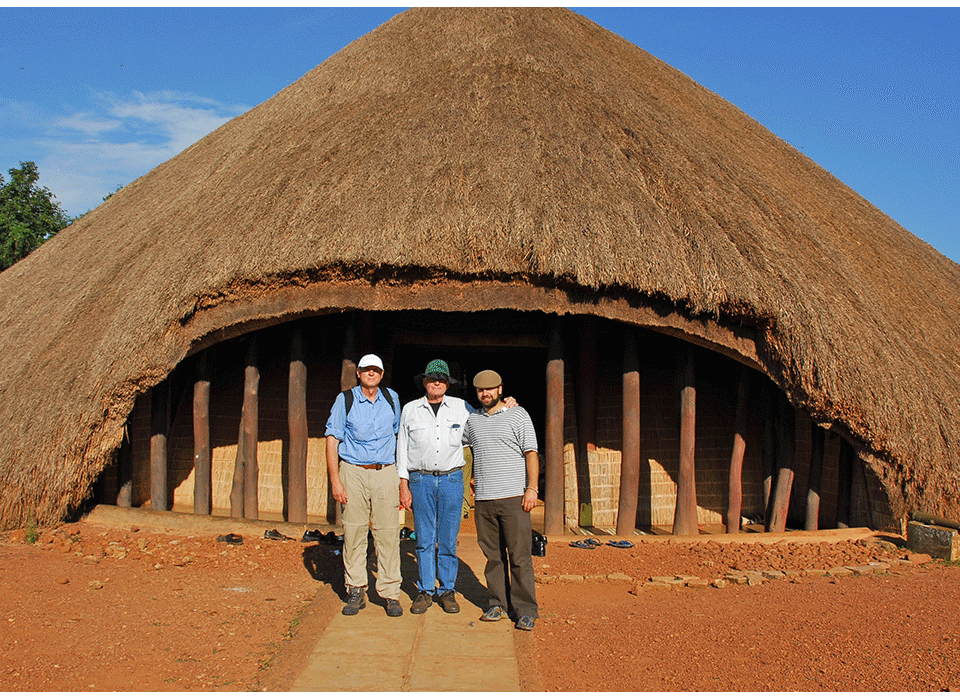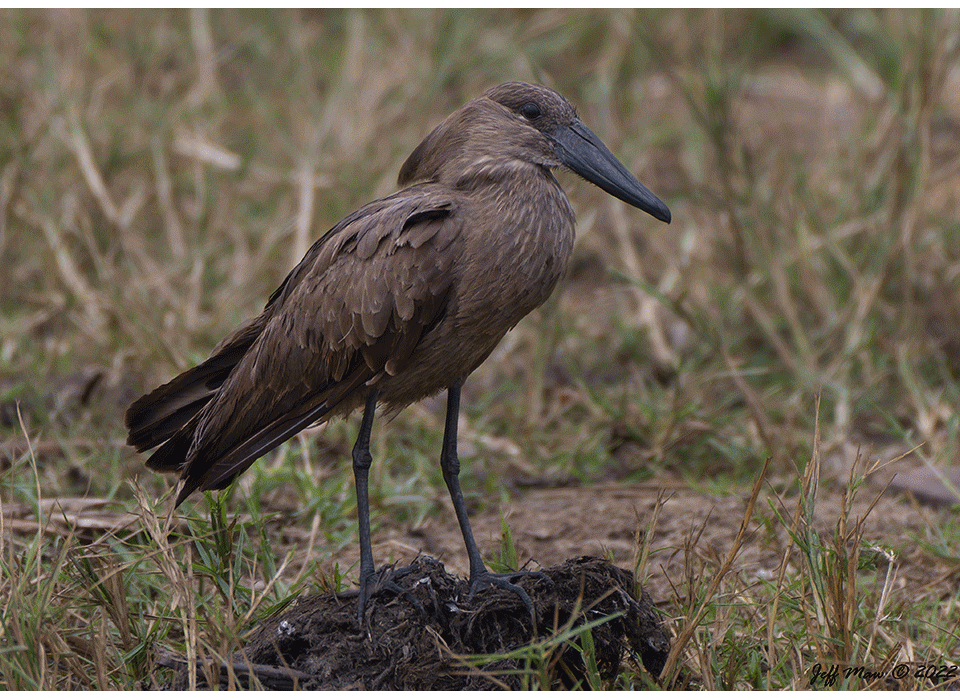
Are vaccines required before visiting Kenya?
November 20, 2025
What’s the best SIM card for tourists in Kenya?
November 20, 2025Can I Drink Tap Water in Kenya?
Traveling through Kenya offers an unforgettable blend of sweeping savannahs, snow-capped peaks, pristine coastlines, and vibrant cultural rhythms. But before you immerse yourself fully in the experience, it’s natural to wonder about everyday practicalities—especially water safety. One of the most frequently asked questions by travelers planning a Kenyan safari or beach holiday is: Can I drink tap water in Kenya? The short answer is that it is generally not recommended for visitors to drink tap water in Kenya. However, understanding why this is the case and how to navigate water safety confidently will help you enjoy your trip without worry. This detailed blog explores everything you need to know about drinking water in Kenya, alternative sources, purification methods, and tips for staying healthy and hydrated throughout your journey.
Kenya’s water systems vary widely across regions. Urban areas like Nairobi, Mombasa, and Kisumu have established municipal supply networks, but the quality of the water can fluctuate depending on infrastructure, seasonal changes, and environmental factors. Rural areas, safari lodges, and coastal destinations often rely on boreholes, wells, or private purification systems, which can be safe in some cases but inconsistent in others. Because your body is not accustomed to the local water microbes, drinking untreated tap water can sometimes lead to stomach discomfort or more serious waterborne illnesses. For this reason, bottled, filtered, or treated water is the safest choice for visitors.
Why Tap Water Isn’t Recommended for Travelers in Kenya
While many Kenyans drink tap water without issues, travelers’ immune systems are not adapted to the local water environment. Even if tap water meets safety standards, distribution pipes may be old, corroded, or compromised in some places. Heavy rains, seasonal water shortages, contamination risks, or inconsistent chlorination levels can affect overall purity. Additionally, different regions have varying water sources—some from reservoirs, others from rivers, wells, or lakes.
It is not uncommon for visitors to experience gastrointestinal discomfort when drinking tap water in East Africa, even if that water is relatively safe for locals. This difference occurs because residents develop resistance over time to naturally occurring bacteria in their environment. Travelers do not have that resistance, making them more vulnerable to stomach issues.
To avoid unnecessary disruptions to your trip, it is best to avoid drinking tap water altogether and instead rely on safe alternatives.
Bottled Water: The Most Accessible and Recommended Option
Bottled water is widely available across Kenya. Whether you are in a city, a national park, on safari, or at the coast, you will find bottled water in supermarkets, hotels, lodges, airport shops, restaurants, and even remote trading centers. Most safari companies and lodges provide complimentary bottled water during game drives and throughout your stay.
Always choose sealed, reputable brands rather than unbranded bottles. Make sure the seal is intact before opening. Bottled water is affordable in Kenya, making it a very convenient option for travelers. Many environmental-conscious lodges and camps now also offer refillable filtered water stations, helping minimize plastic waste.
Filtered and Purified Water in Lodges and Hotels
Kenya’s top safari lodges, tented camps, boutique hotels, and luxury resorts often use their own purification systems to ensure high water quality for guests. These systems may include UV purification, reverse osmosis, filtration, or chlorination. In many cases, the water provided in your room for brushing teeth is filtered and safe for oral hygiene, though you should confirm with your lodge or hotel.
When in doubt, use bottled or filtered water—not tap water—for brushing your teeth. Many travelers forget this small detail and accidentally expose themselves to waterborne bacteria. Even though the amount may seem minimal, it’s better to be consistent with water hygiene.
Drinking Water in Restaurants and Bars
When dining out in Kenya, always choose bottled or filtered water. Avoid tap water or jug water unless the restaurant explicitly states that it has been purified. Most reputable hotels, safari camps, and upscale restaurants understand traveler expectations and will automatically serve purified drinking water.
Ice cubes are another consideration. Ice made from purified water is safe, but it is best to confirm, especially in casual restaurants or bars. Many higher-end establishments use filtered water for ice, but asking politely helps you avoid any risk.
Tea and coffee served at lodges and restaurants are generally safe because the water has been boiled, eliminating harmful microbes. However, cold beverages that involve ice should be checked.
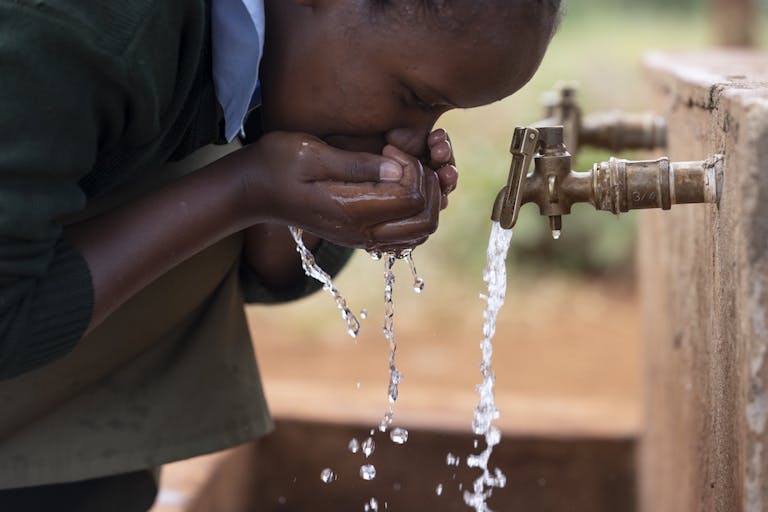 What About Water on Safari?
What About Water on Safari?
Safari destinations like Maasai Mara, Amboseli, Samburu, Tsavo, and Lake Nakuru typically offer very safe drinking-water arrangements. Most safari operators and lodges understand the importance of clean water for international travelers. You will almost always find:
Filtered water refilling stations
Bottled water in safari vehicles
Purified water in your room
Complimentary drinking water during meals
Even in remote bush camps, purification systems are usually well-managed. Safari staff ensure guests have clean drinking water at all times because hydration is essential, especially under hot sun during game drives.
Is Tap Water Safe for Showering and Bathing?
The tap water in Kenya is safe for showering and bathing. You can wash your face, body, and hands without worry. Just be careful not to swallow or ingest the water. This is especially important when showering or rinsing your mouth after brushing your teeth.
Parents traveling with children should pay extra attention, as children may accidentally sip water while bathing. Using bottled water for brushing teeth is strongly recommended for kids too.
Can You Drink Boiled Tap Water in Kenya?
Boiling water is one of the oldest and most effective purification methods. Boiled tap water is generally safe to drink as long as it has been boiled for at least one minute. Many local households use boiling as a primary purification method. However, travelers may find boiling water inconvenient unless staying in accommodations with kitchen access.
In most safari lodges and hotels, purified or bottled water is readily available, making boiling unnecessary. If you are backpacking or staying in remote guesthouses, boiling water can be a practical alternative.
Water Purification Tablets and Filters
Some travelers prefer to bring portable purification methods such as:
Water purification tablets
Portable water filters
UV purifiers
Filtered water bottles
These tools can be helpful for long trips, hikes, or budget travel. However, in mainstream safari itineraries and tourist routes, purified or bottled water is always available, making additional purification optional rather than required.
Avoiding Waterborne Illness in Kenya
Waterborne diseases such as typhoid, cholera, amoebiasis, and traveler’s diarrhea can occur when water is contaminated. While these risks are manageable with proper precautions, travelers should take simple daily measures to stay safe:
Drink only bottled or purified water
Avoid tap water for brushing teeth
Ensure bottles are sealed before use
Use hand sanitizer regularly
Avoid raw or unwashed fruits and vegetables
Ensure meals are properly cooked
Most waterborne illnesses are preventable with awareness and consistent hygiene practices.
Eating Fruits and Vegetables in Kenya
Kenya is rich in fresh produce, and most hotels and lodges wash fruits and vegetables with purified water or treat them before serving. It is safe to eat salads, fruits, and raw vegetables in reputable establishments. Street vendors may not follow the same purification standards, so exercise caution when buying fruits washed with tap water.
If you purchase fruits in local markets, choose options you can peel yourself, such as bananas, pineapples, mangos, and oranges.
Staying Hydrated in Kenya’s Climate
Kenya’s climate varies, but many safari destinations are hot and dry during the day. Staying hydrated is essential for comfort and health. Drink bottled or purified water regularly, especially during long game drives, hikes, or cultural visits. Safari guides usually carry extra water in the vehicle.
Being cautious with water does not mean drinking less; instead, drink the right kind of water consistently.
Experience Kenya with Peace of Mind
Understanding water safety helps you enjoy your Kenyan adventure with confidence. Kenya is a wonderful destination with world-class lodges, impressive hospitality, and dedicated staff who ensure guests have safe drinking water throughout their stay. With the right awareness and simple precautions, you will stay healthy, hydrated, and fully immersed in the magic of Kenya.
For a well-planned, safe, and memorable journey, choosing a trusted safari operator makes all the difference. Experiya Tour Company ensures your safari logistics are seamless and your health concerns are well addressed. Their professional team guides you through safe practices, offers purified water throughout your tour, and ensures your comfort in every destination.
For an unforgettable, worry-free Kenyan adventure, booking your safari with Experiya Tour Company is highly recommended.

